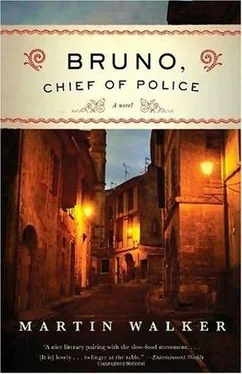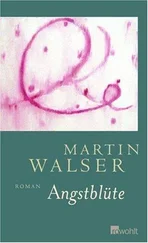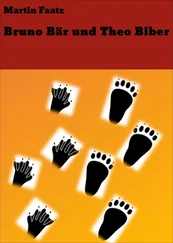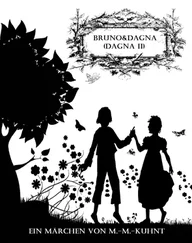Martin Walker - Bruno, chief of police
Здесь есть возможность читать онлайн «Martin Walker - Bruno, chief of police» весь текст электронной книги совершенно бесплатно (целиком полную версию без сокращений). В некоторых случаях можно слушать аудио, скачать через торрент в формате fb2 и присутствует краткое содержание. Жанр: Полицейский детектив, на английском языке. Описание произведения, (предисловие) а так же отзывы посетителей доступны на портале библиотеки ЛибКат.
- Название:Bruno, chief of police
- Автор:
- Жанр:
- Год:неизвестен
- ISBN:нет данных
- Рейтинг книги:3 / 5. Голосов: 1
-
Избранное:Добавить в избранное
- Отзывы:
-
Ваша оценка:
- 60
- 1
- 2
- 3
- 4
- 5
Bruno, chief of police: краткое содержание, описание и аннотация
Предлагаем к чтению аннотацию, описание, краткое содержание или предисловие (зависит от того, что написал сам автор книги «Bruno, chief of police»). Если вы не нашли необходимую информацию о книге — напишите в комментариях, мы постараемся отыскать её.
Bruno, chief of police — читать онлайн бесплатно полную книгу (весь текст) целиком
Ниже представлен текст книги, разбитый по страницам. Система сохранения места последней прочитанной страницы, позволяет с удобством читать онлайн бесплатно книгу «Bruno, chief of police», без необходимости каждый раз заново искать на чём Вы остановились. Поставьте закладку, и сможете в любой момент перейти на страницу, на которой закончили чтение.
Интервал:
Закладка:
He stopped and nodded at Sylvie from the bakery. She pushed forward her small daughter, who carried the floral wreath. The little girl, in red skirt, blue top and long white socks, walked hesitantly towards the Mayor and offered him the wreath, looking quite alarmed as he bent to kiss her on both cheeks. The Mayor took the wreath and walked slowly to the memorial, leant it against the soldier’s bronze leg, stood back, and called out, ‘Vive la France, Vive la Republique.’
And with that Jean-Pierre and Bachelot, both old enough to be feeling the strain of the heavy flags, hauled them to an upright position of salute, and the band began to play Le Chant des Partisans, the old Resistance anthem. Tears began to roll down the cheeks of the two men, and old Marie-Louise broke down in sobs so that her flag wavered and all the children, even the teenagers, looked sobered, even touched, by this evidence of some great, unknowable trial that these old people had lived through.
As the music faded away, the flags of the three allies – Soviet, British and American – were marched forward and raised in salute. Then came the surprise, a theatrical coup engineered by Bruno that he had arranged with the Mayor. This was a way for the old English enemy, who had fought France for a thousand years before being her ally for a brief century, to take her place on the day of victory.
Bruno watched as Monsieur Jackson’s grandson, a lad of thirteen or so, marched forward from his place in the town band where he played the trumpet, his hand on a shiny brass bugle that was slung from a red sash around his shoulders. He reached the memorial, turned to salute the Mayor and, as the silent crowd exchanged glances at this novel addition to the ceremony, raised the bugle to his lips. As Bruno heard the first two long and haunting notes of the Last Post, tears came to his eyes. Through them he could see the shoulders of Monsieur Jackson shaking and the British flag trembled in his hands. The Mayor wiped away a tear as the last pure peals of the bugle died away, and the crowd remained absolutely silent until the boy put his bugle smartly to his side. Then, they exploded into applause and, as Karim went up and shook the boy’s hand, his Stars and Stripes flag swirling briefly to tangle with the British and French flags, Bruno was aware of a sudden flare of camera flashes.
Mon Dieu, thought Bruno. That Last Post worked so well we’ll have to make it part of the annual ceremony. He looked around at the crowd, beginning to drift away, and saw that young Philippe Delaron, who usually wrote the sports report for the Sud-Ouest newspaper, had his notebook out and was talking to Monsieur Jackson and his grandson. Well, a small notice in the newspaper about a genuine British ally taking part in the Victory parade could do no harm now that so many English were buying homes in the Commune. It might even encourage them to complain less about their various property taxes and the price of water for their swimming pools. Then he noticed something rather odd. After every previous parade, whether it was for the eighth of May, for the eleventh of November when the Great War ended, on the eighteenth of June when de Gaulle launched Free France, or the fourteenth of July when France celebrated her Revolution, Jean-Pierre and Bachelot would turn away from each other without so much as a nod and walk back separately to the Mairie to store the flags they carried. But this time they were standing still, staring fixedly at one another. Not talking, but somehow communicating. Amazing what one bugle call can do, thought Bruno.
Maybe if I can get some Americans into the parade next year they might even start talking, and leave one another’s wives alone. But now it was thirty minutes after midday and, like every good Frenchman, Bruno’s thoughts turned to his lunch.
He walked back across the bridge with Marie-Louise, who was still weeping as he gently took her flag from her. The Mayor, and Monsieur Jackson and his daughter and grandson were close behind. Karim and his family walked ahead, and Jean-Pierre and Bachelot, with their almost identical wives, brought up the rear, marching in grim silence as the town band, without its best trumpeter, played another song from the war that had the power to melt Bruno: J’attendrai.
It was the song of the women of France in 1940, as they watched their men march off to a war that turned into six weeks of disaster and five years of prison camps. ‘… day and night, I shall wait always, for your return.’ The history of France was measured out in songs of war, he thought, many sad and some heroic, but each verse heavy with its weight of loss.
The crowd was thinning as they turned off to lunch, most of the mothers and children going home, but some families making an event of of the day and turning into Jeannot’s bistro beyond the Mairie, or the pizza house beyond the bridge.
Bruno would normally have gone with some friends to Ivan’s cafй for his plat du jour, usually a steak-frites – except for the time when Ivan fell in love with a Belgian girl staying at a local camp site and, for three glorious and passionate months until she packed up and went back to Charleroi, steak-frites became moules-frites. Then there was no plat du jour at all for weeks until Bruno had taken the grieving Ivan out and got him heroically drunk.
But today was a special day, and so the Mayor had organised a dйjeuner d’honneur for those who had played a part in the parade. Now they climbed the ancient stairs, bowed in the middle by centuries of feet, to the top floor of the Mairie which held the council chamber and, on occasions such as this, doubled as the banquet room. The town’s treasure was a long and ancient table that served council and banquet alike, and was said to have been made for the grand hall of the chateau of the Brillamont family itself in those happier days before their Seigneur kept getting captured by the English. Bruno began counting; twenty places were laid for lunch. He scanned the room to see who his fellow diners might be.
There was the Mayor with his wife, and Jean-Pierre and Bachelot with their wives, who automatically went to opposite ends of the room. For the first time, Karim and his wife Rashida had been invited, and stood chatting to Montsouris the Communist and his dragon of a wife who was even more left-wing than her husband. Monsieur Jackson and Sylvie the baker and her son were talking to Rollo, the local headmaster, who sometimes played tennis with Bruno, and the music teacher, who was the conductor of the town band, and also the master of the church choir. He had expected to see the new captain of the local gendarmes, but there was no sign of the man. The plump and sleek Father Sentout, priest of the ancient church of St Denis who was aching to become a Monsignor, emerged puffing from the new elevator. He was pointedly not talking to his lift companion, the formidable Baron, a retired industrialist who was the main local landowner. Bruno nodded at him. He was a fervent atheist and also Bruno’s regular tennis partner.
Fat Jeanne from the market appeared with a tray of champagne glasses, swiftly followed by young Claire, the Mayor’s secretary, who carried an enormous tray of amuse-bouches that she had made herself. Claire had a tendresse for Bruno, and she’d talked to him of little else for weeks, leaving the Mayor’s letters untyped as she thumbed through Madame Figaro and Marie-Claire to seek ideas and recipes. The result, thought Bruno as he surveyed the offerings of celery filled with cream cheese, olives stuffed with anchovies and slices of toast covered with chopped tomatoes, was uninspiring.
‘They are Italian delicacies called bruschetta,’ Claire told him, gazing deeply into Bruno’s eyes. She was pretty enough although over-talkative, but Bruno had a firm rule about never playing on one’s own doorstep. Juliette Binoche could have taken a job at the Mairie and Bruno would have restrained himself. But he knew that his reticence did not stop Claire and her mother, not to mention a few other mothers in St Denis, from referring to him as the town’s most eligible bachelor. At just forty he thought he might have ceased being the object of this speculation, but no. The game of ‘catching’ Bruno had become one of the town’s little rituals, a subject for gossip among the women and amusement among the married men, who saw Bruno as the valiant but ultimately doomed quarry of the huntresses. They teased him about it, but they approved of the discretion he brought to his private life and the polite skills with which he frustrated the town’s mothers and maintained his freedom.
Читать дальшеИнтервал:
Закладка:
Похожие книги на «Bruno, chief of police»
Представляем Вашему вниманию похожие книги на «Bruno, chief of police» списком для выбора. Мы отобрали схожую по названию и смыслу литературу в надежде предоставить читателям больше вариантов отыскать новые, интересные, ещё непрочитанные произведения.
Обсуждение, отзывы о книге «Bruno, chief of police» и просто собственные мнения читателей. Оставьте ваши комментарии, напишите, что Вы думаете о произведении, его смысле или главных героях. Укажите что конкретно понравилось, а что нет, и почему Вы так считаете.












